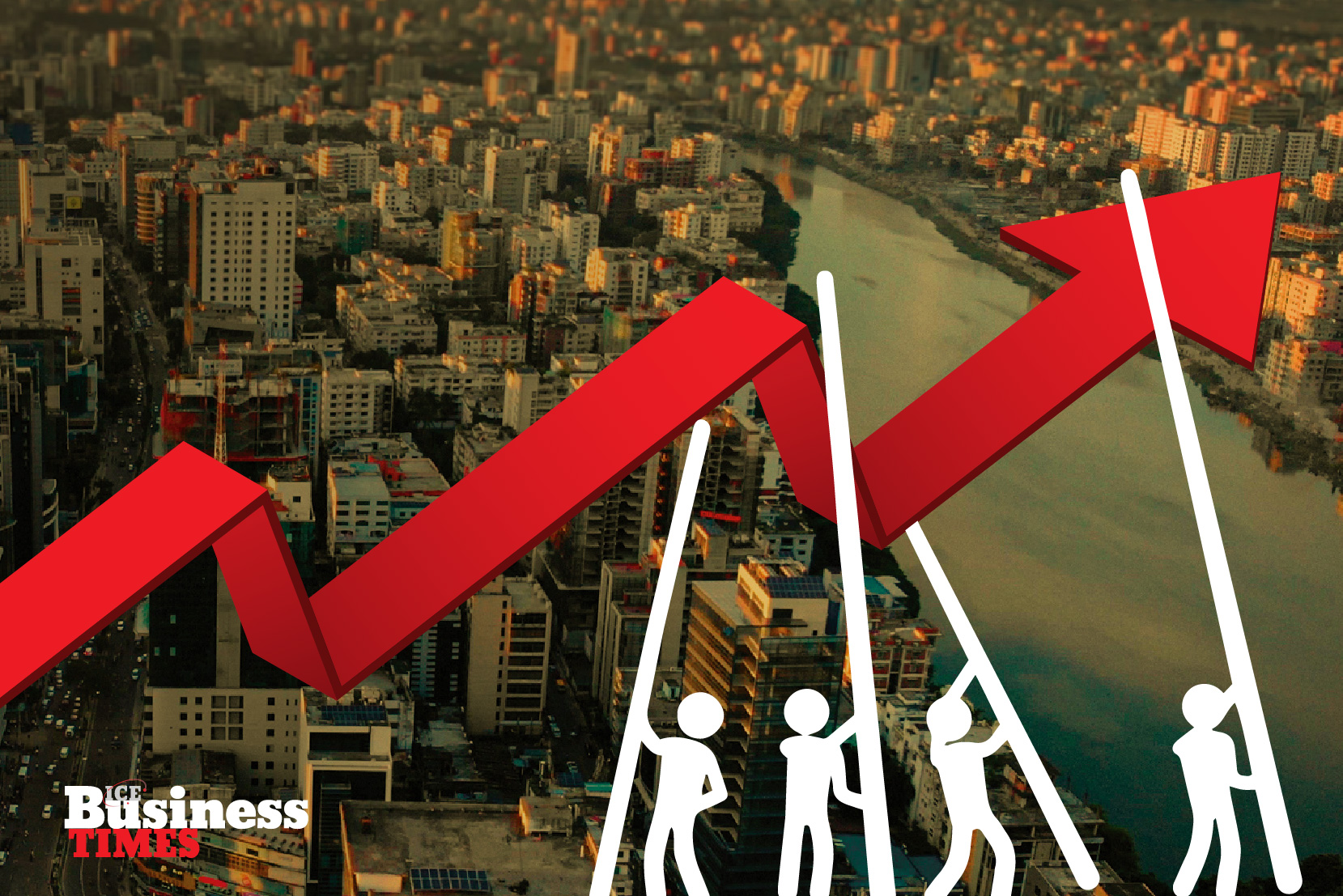An overview of the government’s directive on controlling food prices as Ramadan approaches amidst external economic crises.
Food price inflation is a pressing concern that impacts millions of households worldwide, including those in Bangladesh. As prices continue to rise, consumers face mounting challenges in accessing affordable and nutritious food, exacerbating poverty and food insecurity. The country is exploring the factors driving food price inflation, the government’s response to the crisis, and the challenges ahead.
Existing Challenges
As the sacred month of Ramadan approaches, the challenge of ensuring stable and affordable food prices looms large over Bangladesh. With millions of citizens preparing to observe fasting and partake in communal iftar meals, the need for accessible food staples becomes even more pronounced. However, recent trends paint a grim picture: food price inflation has surged to alarming levels, wreaking havoc on household budgets and straining the country’s economic stability.
In the fiscal year 2022-23, Bangladesh witnessed a staggering 9.02% increase in the Consumer Price Index, the highest in 12 years. This surge, fueled by a multitude of factors, has significantly burdened citizens across the socio-economic spectrum. From rural farmers struggling with rising input costs to urban dwellers grappling with inflated grocery bills, the impact of soaring food prices is felt far and wide.
The situation is further exacerbated by external market dynamics, including a 16.12% depreciation of the local currency against the US dollar and soaring energy costs. Between July 2022 and June 2023, the Bangladeshi taka weakened while energy tariffs surged, leading to a compound increase in transportation and production costs. These challenges have left businesses reeling, with listed companies reporting a 20.8% drop in profits despite a 10.5% increase in sales.
Against this backdrop of economic turmoil, the government’s response has come under scrutiny. While efforts have been made to monitor and regulate markets, including initiatives to curb price gouging and ensure transparency, the need for decisive action remains paramount. In a recent directive, Prime Minister Sheikh Hasina underscored the importance of keeping food prices stable during Ramadan, signalling a renewed commitment to addressing this pressing issue.
Global and Local Factors Behind Price Surges
As we look deep into the complex web of factors behind the surge in food prices, it becomes evident that both global and local dynamics play significant roles in exacerbating the issue.
Bangladesh, like many other nations, is not immune to the ripple effects of global economic trends. The rise in raw material prices internationally has dealt a severe blow to import-dependent countries like Bangladesh. Because the local currency depreciated against the US dollar, imports became significantly costlier. This depreciation, coupled with soaring energy costs and transportation expenses, has further fueled inflationary pressures. For instance, the price of diesel, a crucial component in transportation, surged by 37%, while the cost of furnace oil, used by power plants, saw a staggering 41.4% increase. Beyond global market forces, domestic market manipulation has also contributed to the upward trajectory of food prices. Reports indicate that certain vested interests have engaged in tactics to inflate prices, exacerbating the strain on consumers. Despite adequate supply, the prices of essential commodities like beef and onions have soared, prompting concerns about market stability and price gouging. Such practices not only erode consumer confidence but also undermine the government’s efforts to ensure affordability and accessibility.
The price surge has left one in every five households food insecure, highlighting the magnitude of the crisis. Moreover, businesses, particularly in the textile sector, have been forced to cut production by 30% to 40% amid gas shortages and struggles to open Letters of Credit (LCs). The ripple effects of these challenges extend beyond economic realms, impacting household budgets, livelihoods, and overall socio-economic stability.
The government has stated that it will be implementing measures to disclose pricing information and hold market participants accountable for any unjustified price increases. This transparency is essential for empowering consumers and enabling them to make informed purchasing decisions.
Government Action Plan
In response to the pressing issue of escalating food prices, the government has taken decisive steps to alleviate the burden on consumers and ensure market stability. One significant measure has been the intensified monitoring and regulation of markets to prevent price manipulation and ensure fair practices. Through increased oversight, authorities aim to maintain transparency and accountability in the marketplace, fostering trust among consumers.
The government has stated that it will be implementing measures to disclose pricing information and hold market participants accountable for any unjustified price increases. This transparency is essential for empowering consumers and enabling them to make informed purchasing decisions. To address instances of price gouging and exploitation, the government has undertaken a crackdown on unethical practices in the food supply chain. By imposing penalties and sanctions on violators, authorities seek to deter such behaviour and protect consumers from unjustified price hikes.
Of particular significance is the Prime Minister’s recent directive emphasising the need to stabilise food prices, especially in anticipation of the holy month of Ramadan. Concrete measures are being implemented to curb price increases and maintain affordability for consumers. These measures encompass various aspects, including market regulation, price monitoring, and targeted interventions to address supply chain challenges.
The government’s proactive response and the Prime Minister’s directives reflect a concerted effort to address the challenges posed by food price inflation. By prioritising market stability and consumer welfare, authorities aim to mitigate the impact of rising prices and uphold the well-being of the populace, particularly during periods of increased demand such as Ramadan.
Way Forward
Despite concerted efforts to stabilise food prices, significant challenges persist, threatening to undermine progress and exacerbate the burden on consumers. Supply chain disruptions, stemming from both domestic and global factors, continue to strain the availability and affordability of essential food items. The volatility of external markets, coupled with regulatory enforcement issues, further complicates the situation, making it difficult to maintain stability in the face of fluctuating prices.
Supply chain disruptions, made worse by ongoing global economic uncertainties, pose a formidable challenge to efforts aimed at controlling food prices. From production to distribution, disruptions at any stage of the supply chain can lead to shortages and price hikes, impacting consumers across the board. Moreover, external market volatility, driven by factors beyond the government’s control, adds another layer of complexity to the issue. Fluctuations in global commodity prices, exchange rates, and geopolitical tensions can all influence local food prices, making it challenging to predict and manage inflationary pressures.
Regulatory enforcement also remains a critical concern, as the effectiveness of policies aimed at curbing price gouging and market manipulation depends largely on their implementation. Despite efforts to monitor and regulate markets, instances of price manipulation and unfair practices persist, undermining consumer confidence.
To address these challenges and chart a path forward, enhanced coordination between government agencies is essential. Collaborative efforts to streamline supply chains, strengthen market monitoring mechanisms, and enforce regulations effectively can help mitigate the impact of disruptions and stabilise prices. Moreover, increasing public awareness about consumer rights and market dynamics can empower consumers to make informed choices and hold stakeholders accountable.
















